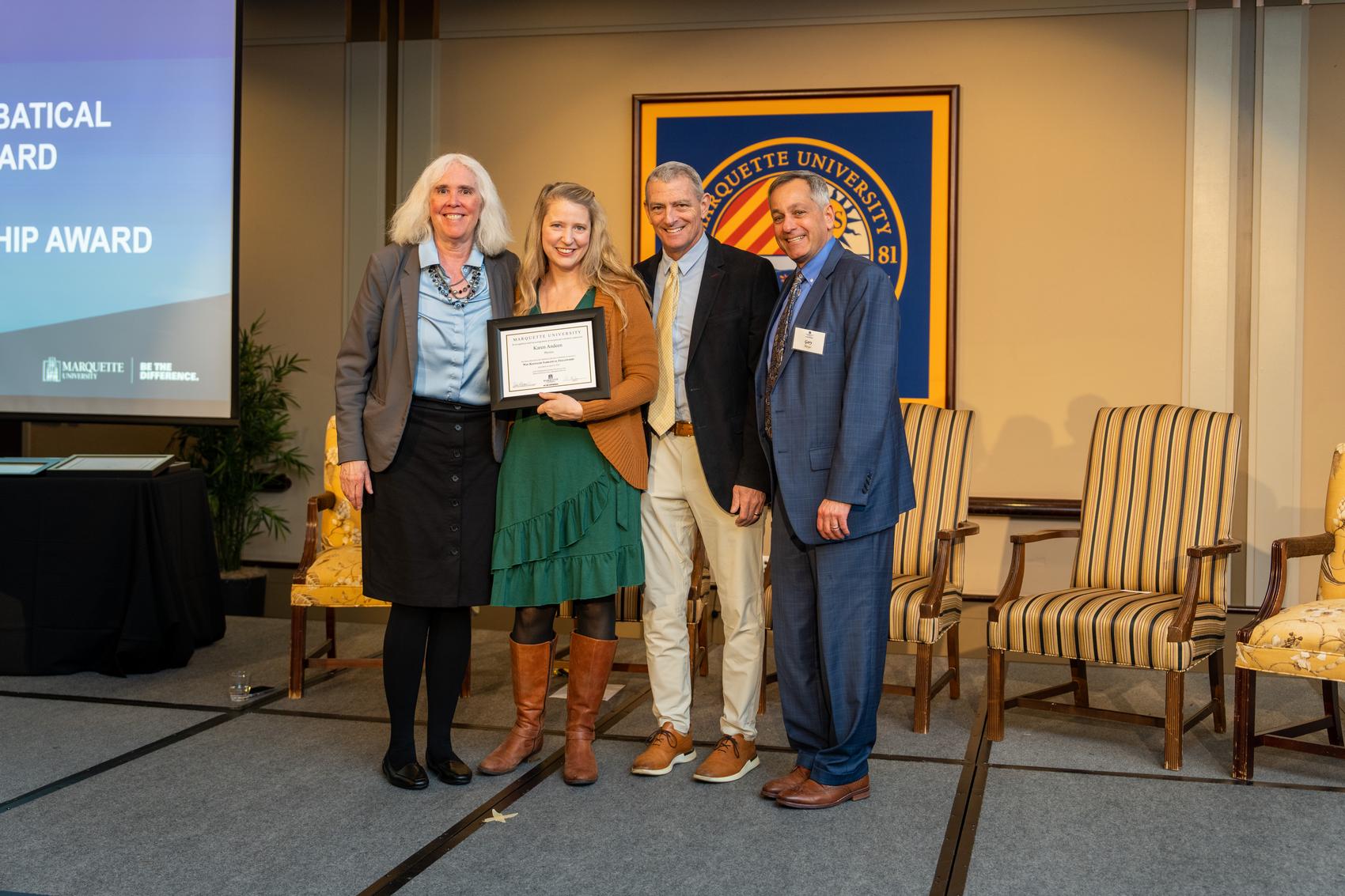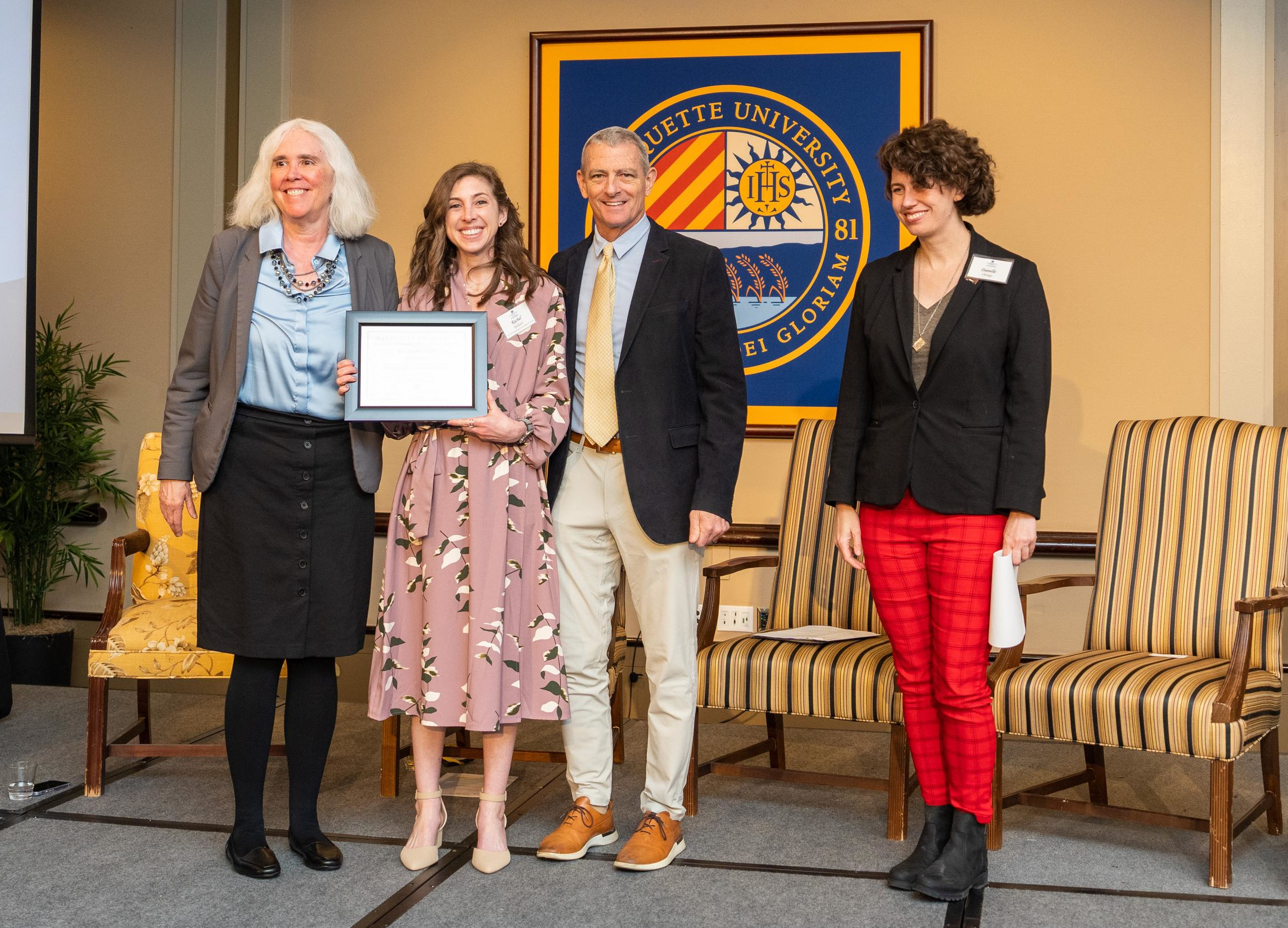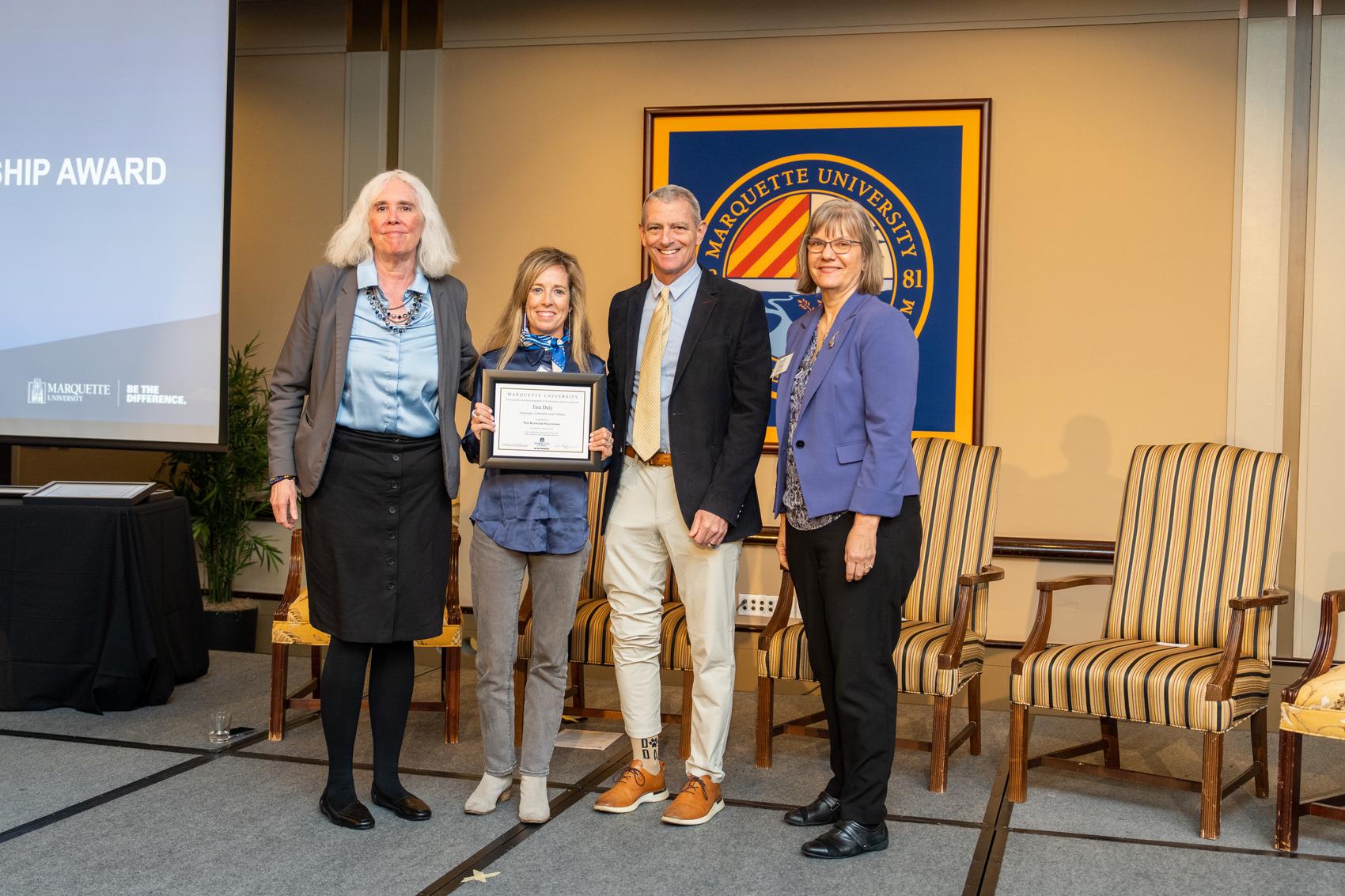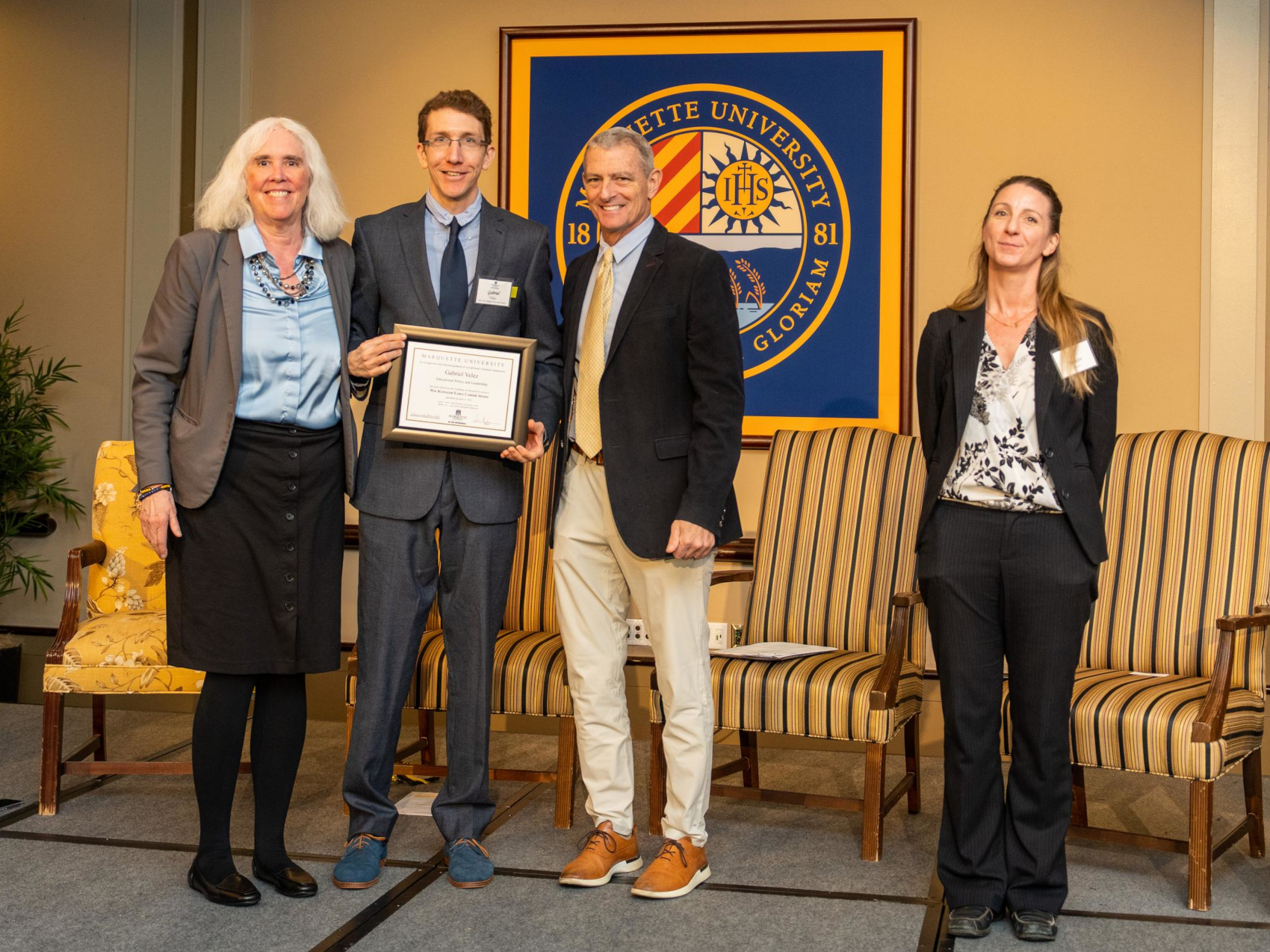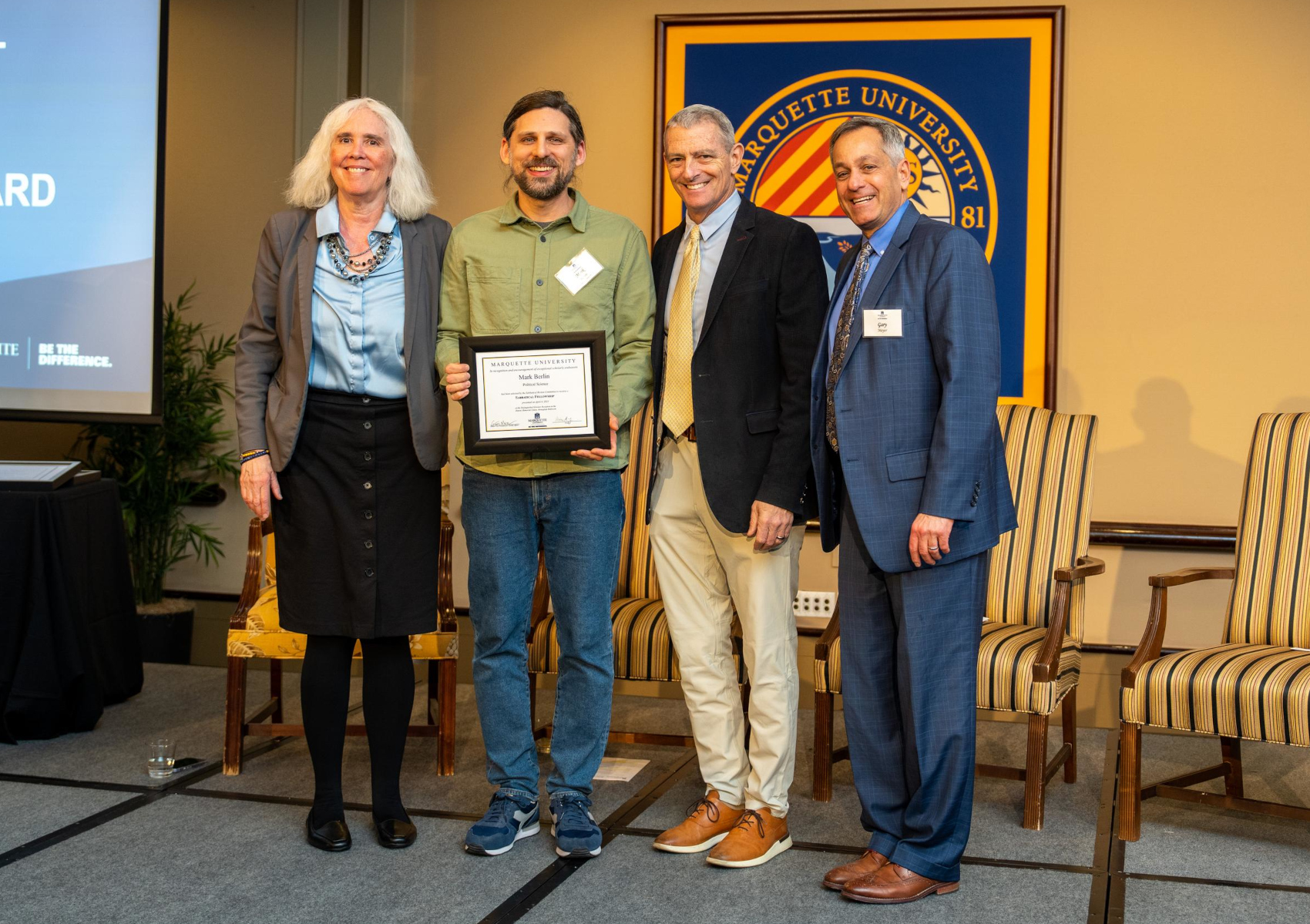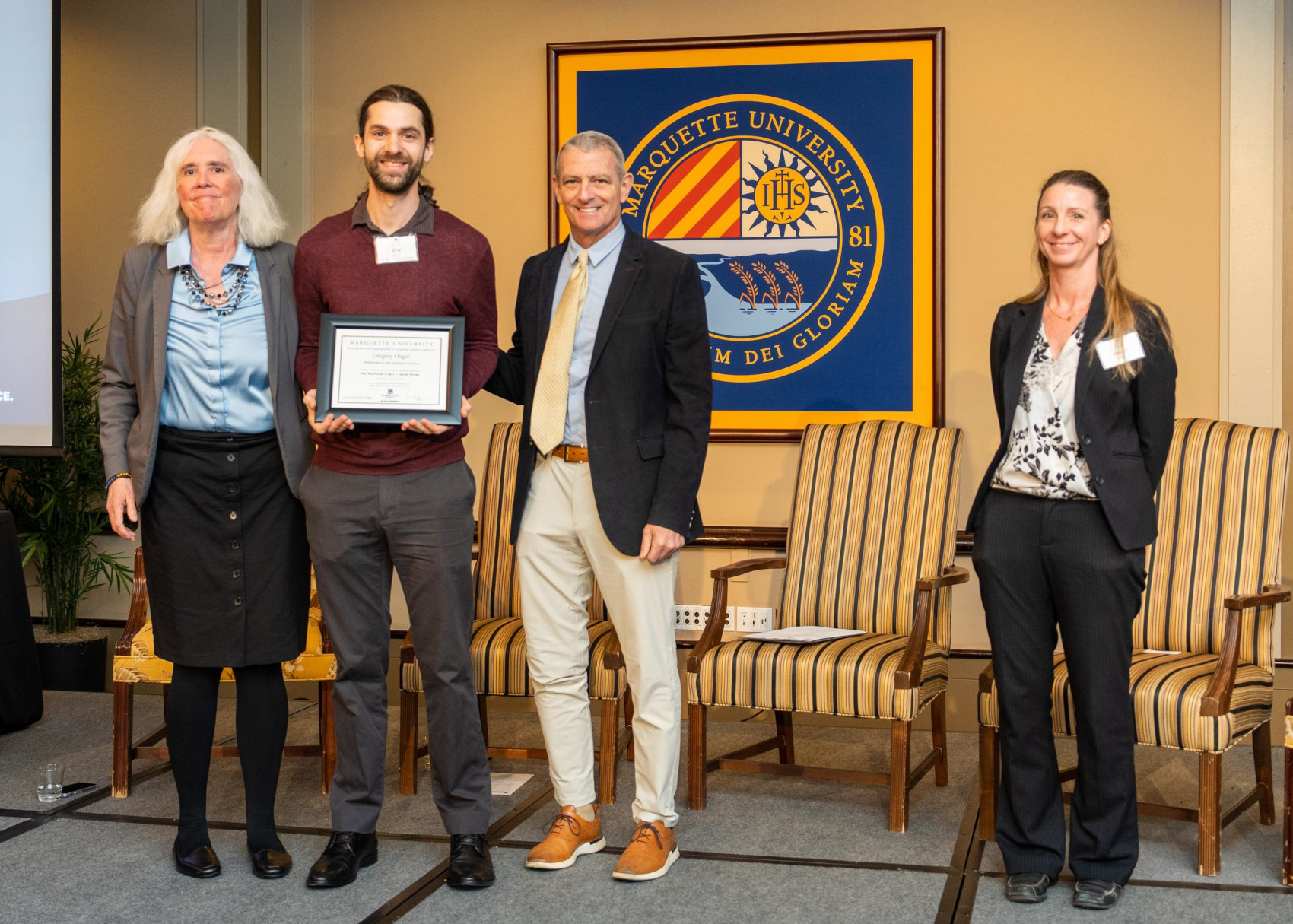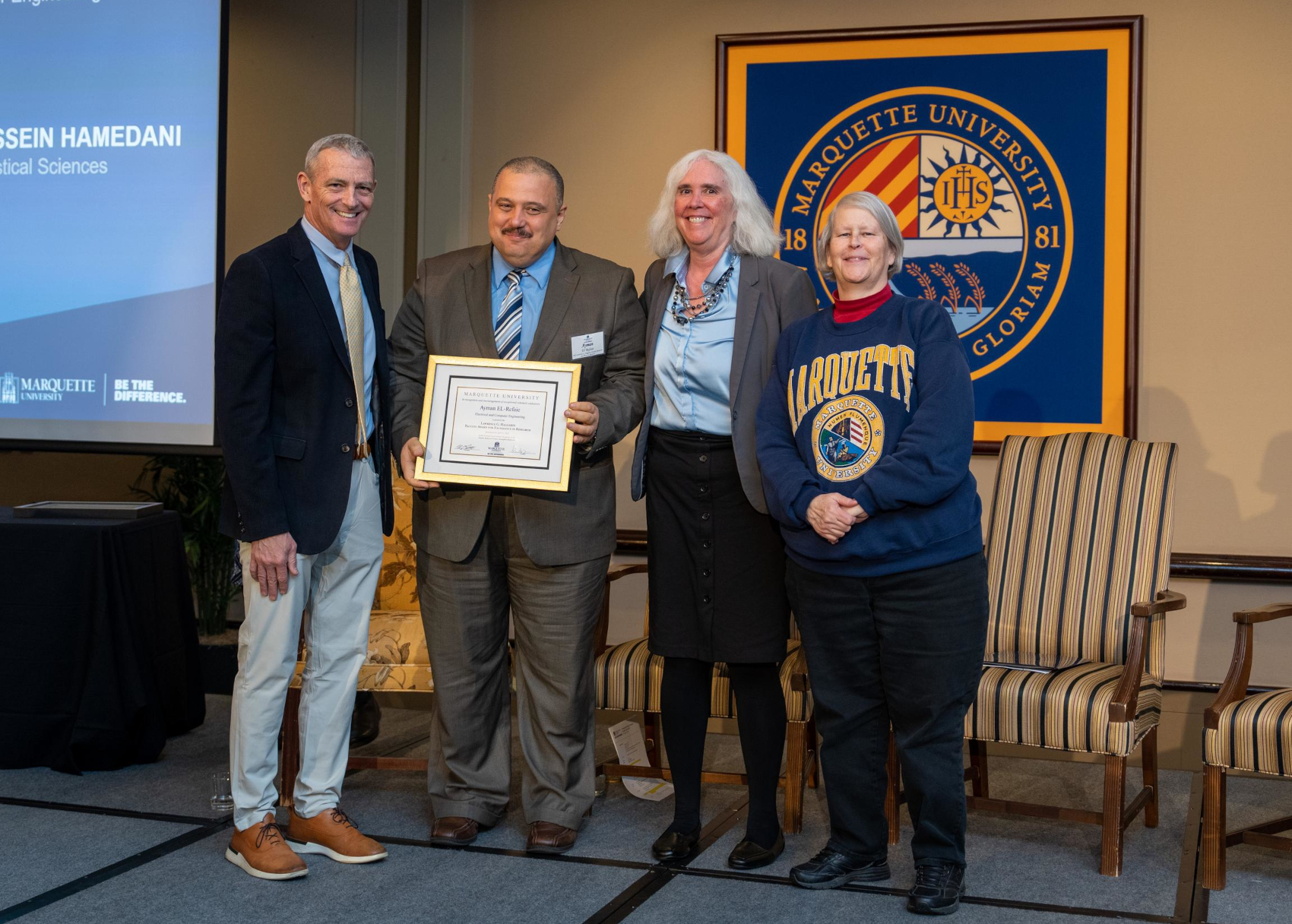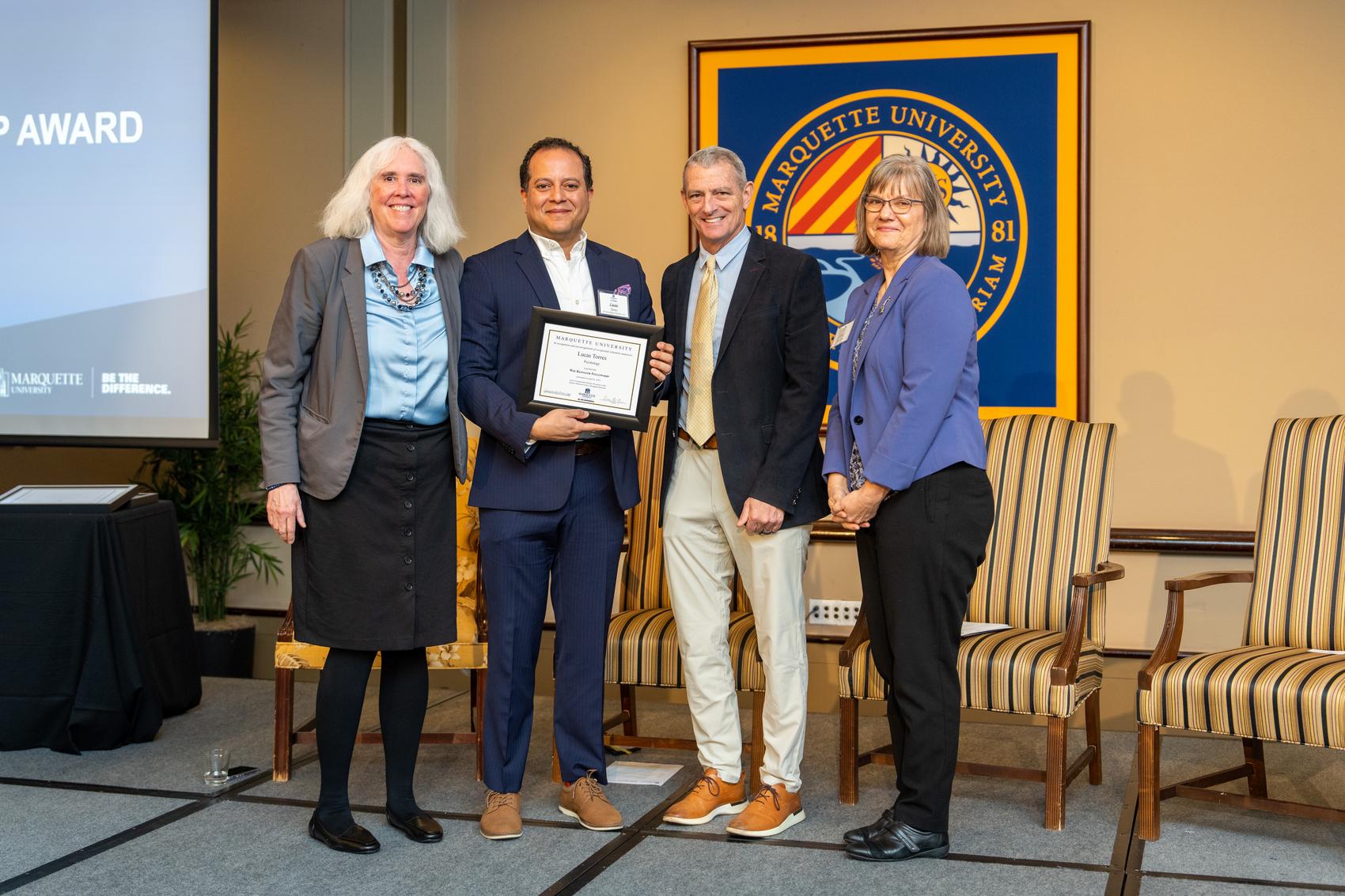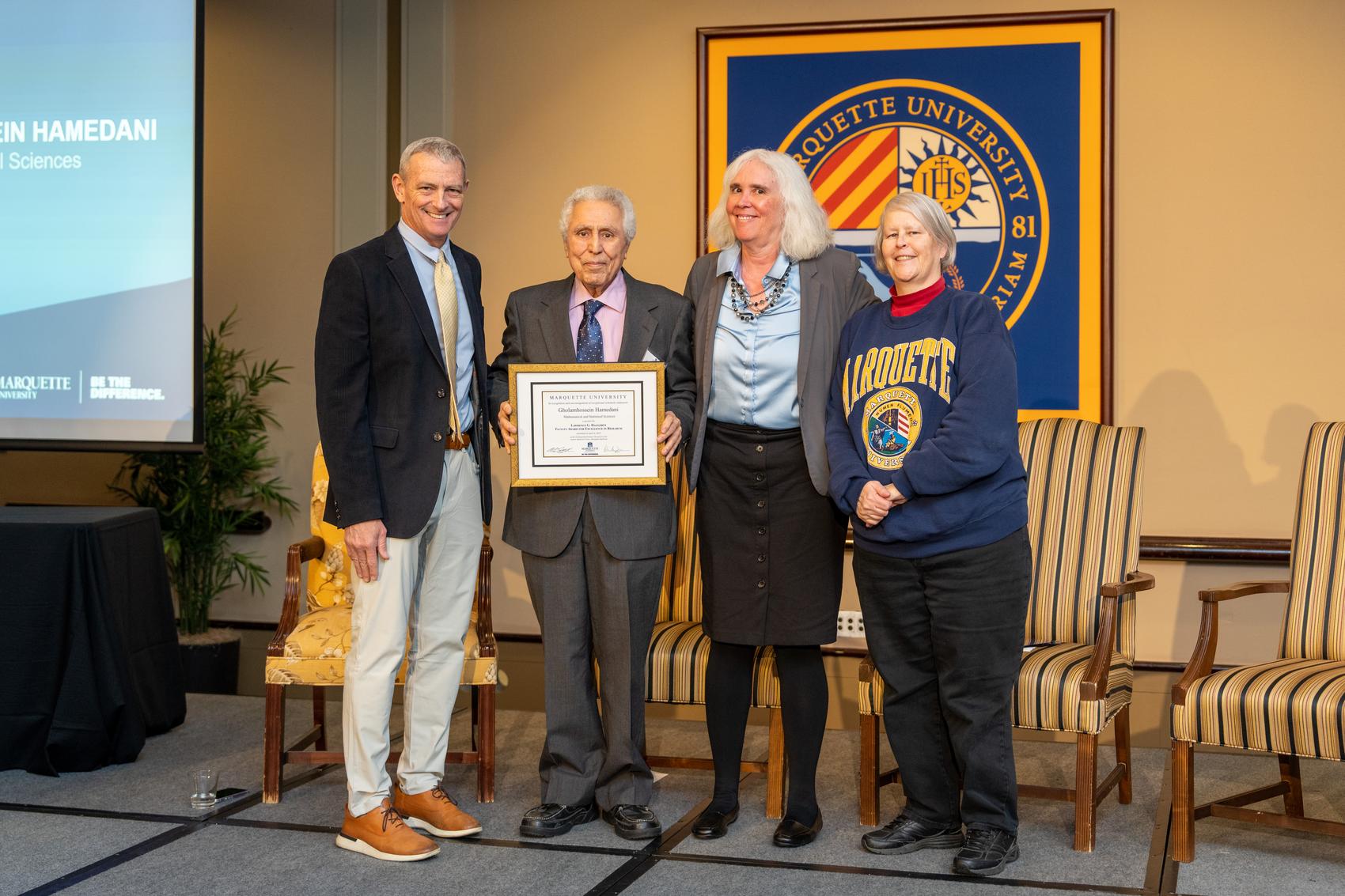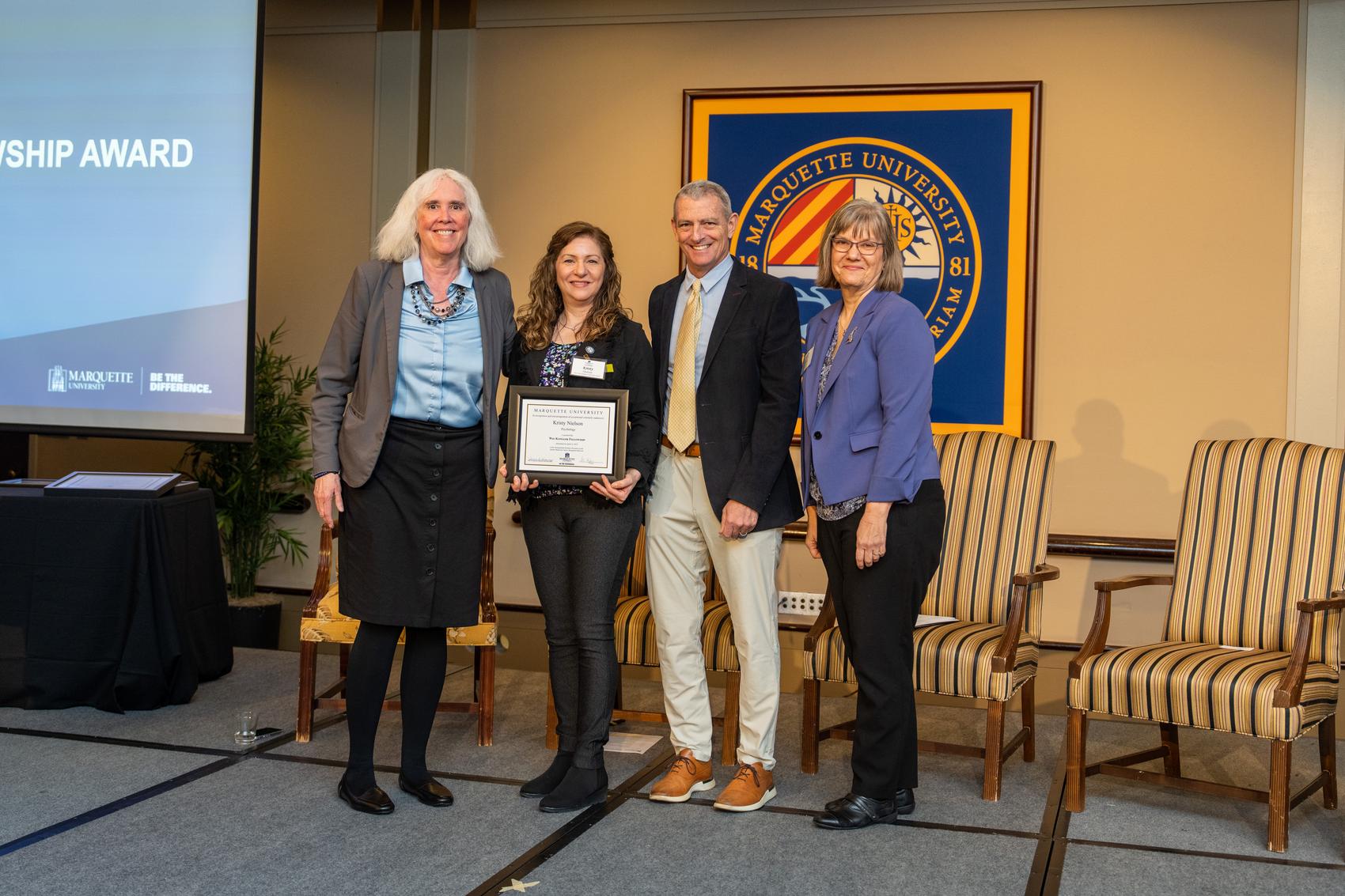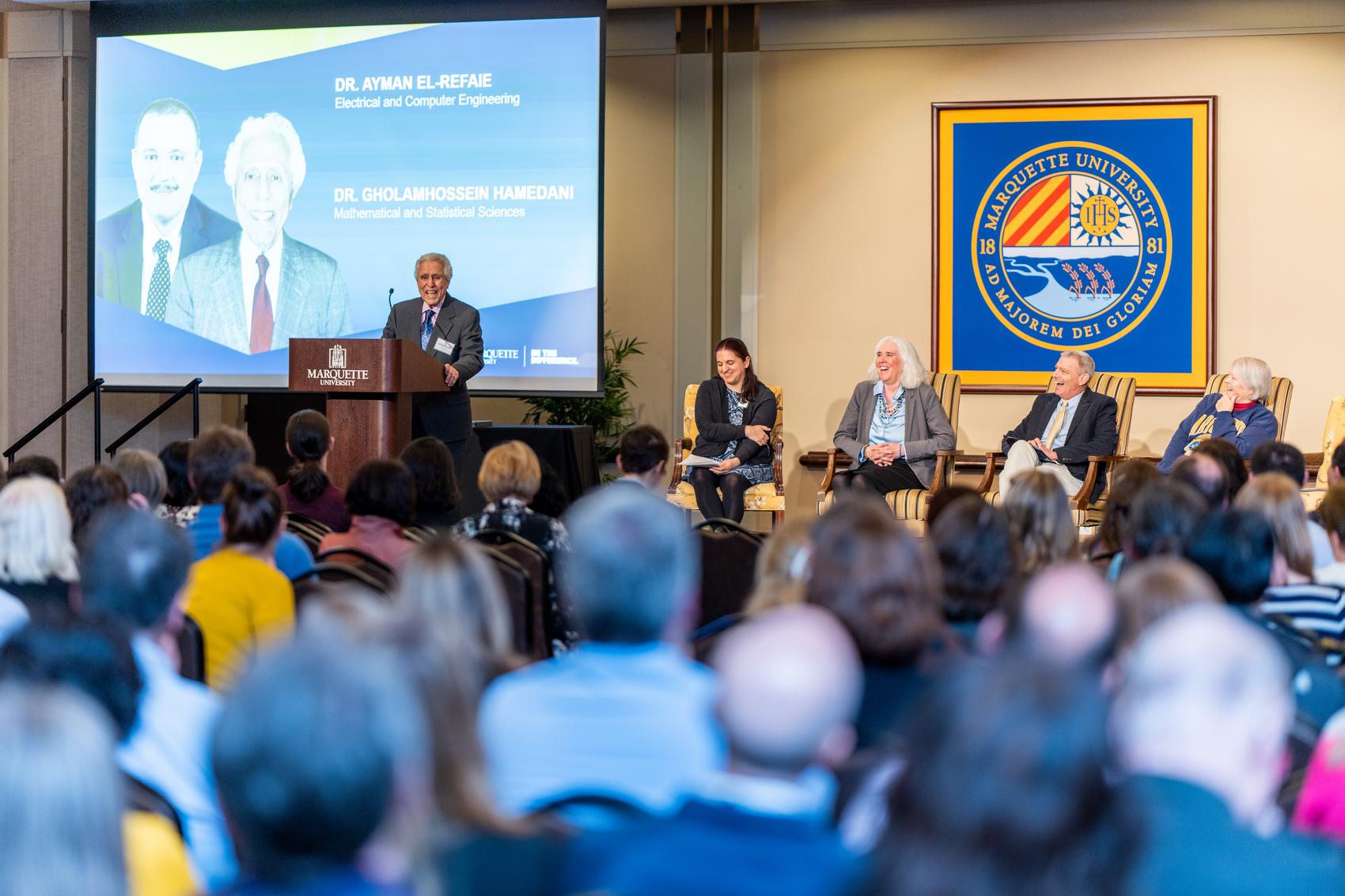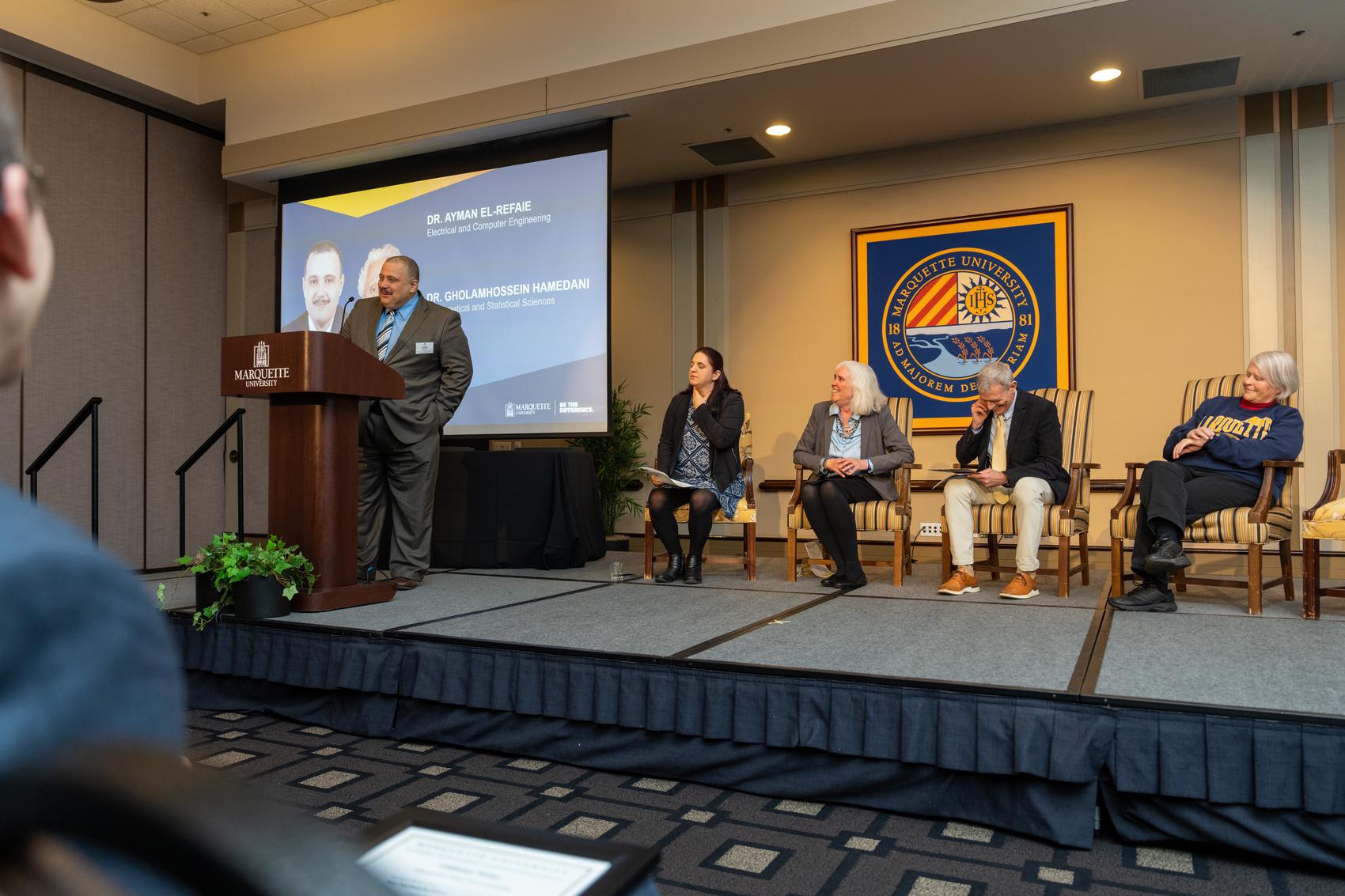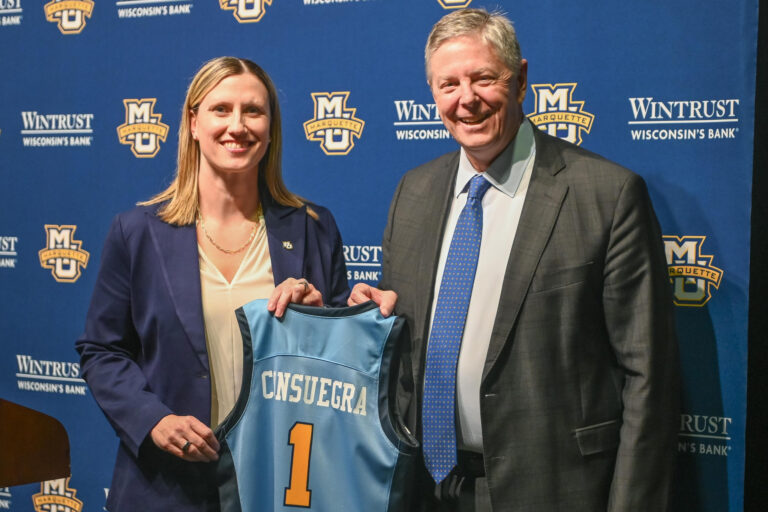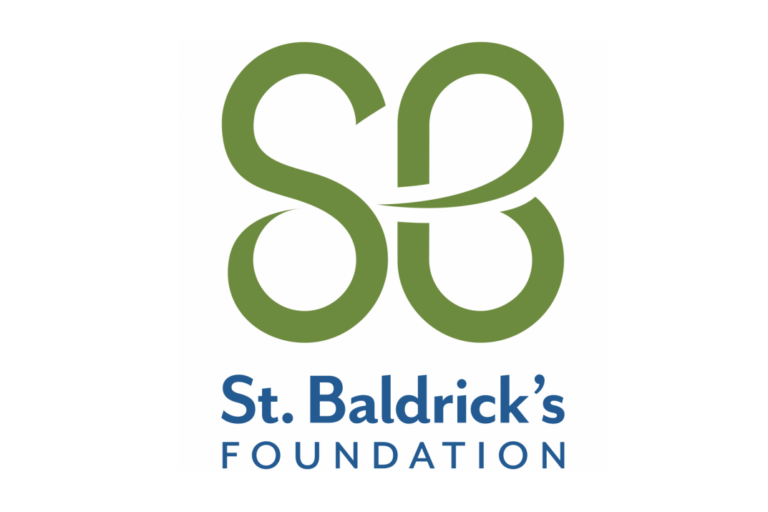Twelve faculty members were honored on Tuesday, April 4, at the Distinguished Scholars Program, which recognizes faculty for outstanding achievement in research and scholarship.
Lawrence G. Haggerty Faculty Award for Excellence in Research
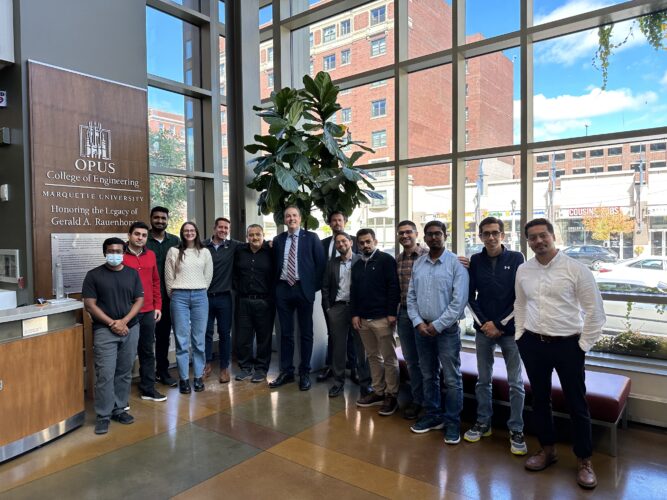
Dr. Ayman EL-Refaie, Thomas and Suzanna M. Werner Endowed Chair in Secure and Renewable Energy Systems and professor of electrical and computer engineering in the Opus College of Engineering
Dr. Ayman EL-Refaie is a world-renowned expert in the areas of electrical machines, drives and power conversion. With over 20 years of research experience, he has 48 issued U.S. patents, 69 highly cited journal publications and 135 conference publications with several others pending.
He has served and is serving as principal investigator on several multi-million-dollar research grants with an established track record in developing innovative technologies that have impacted the use of renewable energy, sustainability and electrification of transportation.
EL-Refaie is currently a pioneer in developing low-cost electric drivetrains for hybrid and electric vehicles. He recently received a $6.25 million Department of Energy grant to pursue this work. This project will lead to novel high-performance electric drivetrains that eliminate rare-earth material. These materials are currently relied upon in traction motors, and they pose significant sustainability risk due to the geopolitical challenges surrounding them as 95% of these materials come from overseas.
He is also leading pioneering effort to develop high specific power electric drivetrains for aerospace applications enabled by additive manufacturing; he has recently received a $6.8 million ARPA-E (part of the DOE) grant to pursue this work. This project achieves two to three times improvement in specific motor power, which will be a key enabler for hybrid and electric propulsion for the future of aviation.
“I am very honored and humbled to receive such a prestigious award,” EL-Rafaie said. “I am very grateful to Mr. Lawrence G. Haggerty for his generous donation to establish this award. I am also very grateful for the university, college and department for their support and recognition. I consider this more of a team award recognizing the efforts of our research team especially my graduate students who conduct the main bulk of the research work.”

Dr. Gholamhossein Hamedani, professor of mathematical and statistical sciences in the Klingler College of Arts and Sciences
Dr. Gholamhossein Hamedani conducts research in the area known as probability distribution theory, within the broad field of mathematical probability and statistics. When modeling lifetime data, classical distributions such as normal (otherwise known as Gaussian or bell curve), have been successfully applied and widely used in areas of engineering, medical sciences, economics and finance. However, the classical distributions fail to always provide the best fit which has led to the development of more generalized versions of distributions.
Hamedani has spent his career working toward extending the classical distributions, as well as developing characterizations of these distributions to build a more complete understanding of the underlying statistical model. His current research work is focused on the “characterization of distributions.” The term characterize in this mathematical sense implies a description of the properties that make the distribution unique, i.e., one of a kind.
This work has resulted in three research monographs: “Characterization of Recently Introduced Univariate Continuous Distributions I, II and III.” He is currently working on “Research Monograph IV.”
“To fully appreciate the meaning and the proper application of a continuous univariate distribution, one should be equipped to go through two scientific steps,” said Dr. Samad Hedayat, distinguished professor in the Department of Mathematics, Statistics, and Computer Science at the University of Illinois, Chicago. “First step: One should know the true meaning of the distribution by various available means of characterizations. Second step: One should know the underlying phenomenon for which the distribution is to be meaningfully approximated. These outstanding volumes prepared by Professor G.G. Hamedani are providing timely and most comprehensive mathematical/statistical tools for the first step in applying and utilizing continuous univariate distributions.”
Way Klingler Fellowship
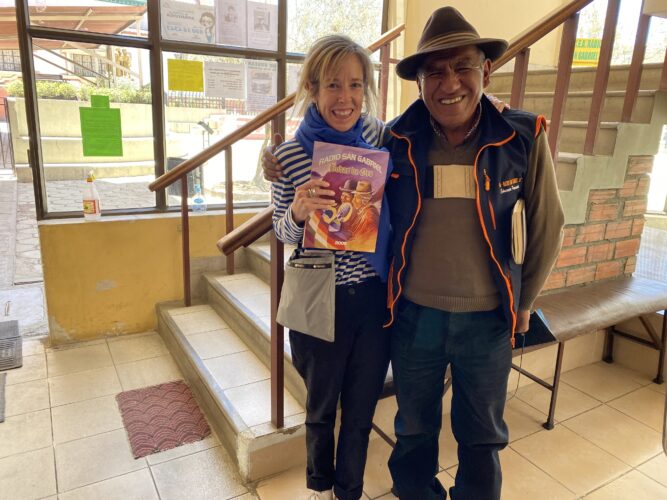
Dr. Tara Daly, associate professor of languages, literatures and cultures in the Klingler College of Arts and Sciences
Dr. Tara Daly’s research is focused on the Andean region in South America – with an emphasis on Bolivia – and currently centers around two main questions: 1) how do Andean Indigenous peoples navigate modernity in contradictory ways that can inform global Indigenous studies? and 2) how does contemporary literature, art and oral storytelling enable us to perceive these contradictions and learn from them?
Indigenous peoples in major urban centers like La Paz, Bolivia, and Lima, Peru, are both Indigenous and Bolivian/Peruvian; both traditional and modern. Eschewing binaries that have historically pigeonholed Indigenous peoples as either sellouts to capitalism or as romantic artifacts, Daly’s project investigates the way that the arts instruct us about the disruptions that Indigenous peoples, and particularly women, perform to dominant modes of knowing, telling history and participating in the global economy.
Daly is in the process of writing a book titled “Back to the Future: Bartolina Sisa and Archival Afterlives.” The project it is the only book to study the 18th-century Bolivian Aymara Indigenous heroine, Bartolina Sisa, and will retell history from the perspective of Indigenous peoples. The Way Klingler Fellowship will help her travel to Bolivia to further explore a radio novel critical to her work.
“I am thrilled to receive the Way Klingler Scholarship,” Daly said. “This award is not just an acknowledgement of my research, but of the Indigenous writers, performers and artists that have shaped our history and will lead our future. I am honored and humbled to learn from them. This award will enable me to complete a book on Bartolina Sisa, an Aymara Indigenous woman, who fought in the name of social justice and fair labor practices, ultimately giving up her life for the cause. Generations later, she continues to inspire feminist and indigenous collectives in the Andes and beyond.”

Dr. Kristy Nielson, professor of psychology in the Klingler College of Arts and Sciences
Dr. Kristy Nielson’s research uses cognitive and neuroimaging methods to study the mechanisms in the brain that underly memory and complex thinking processes (“executive functions”); how these mechanisms change in aging and Alzheimer’s disease; genetic influences on these mechanisms; early biomarkers and gender differences that predict cognitive decline; and interventions such as exercise that can prevent or reduce cognitive decline.
This project will allow Nielson and her team to develop a brain activity index that will identify who is most likely to develop Alzheimer’s disease and to do so before their symptoms are evident. Early identification is crucial to being able to implement effective interventions that could reduce or reverse disease progress.
The work is focused specifically on women, who have double the risk of Alzheimer’s disease as men. The project is designed to lead to new standards in identifying and treating early signs of Alzheimer’s disease, before symptoms begin, when interventions can be most successful.
“This project is paramount to the current directions of my laboratory,” Nielson said. “We are extending 20 years of federally funded functional-MRI (neuroimaging) research directed at understanding, predicting and intervening in cognitive changes associated with aging and risk for dementia in urgent, new directions. We are doing this using advanced electroencephalography (EEG), which precisely localizes brain activity as it occurs in time. We will identify the earliest brain changes that signal early Alzheimer’s disease and implement an exercise intervention toward preventing cognitive decline.”
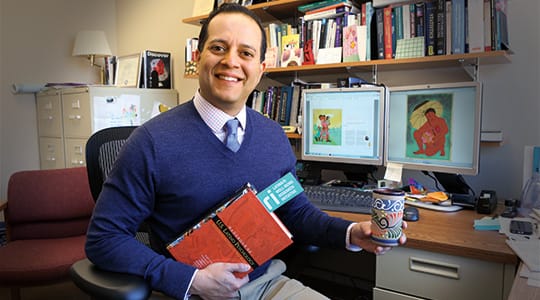
Dr. Lucas Torres, professor of psychology in the Klingler College of Arts and Sciences
Dr. Lucas Torres seeks to identify the factors and mechanisms that produce mental health disparities. Rates of depression and suicidality in the United States have increased exponentially in the past decade and are often experienced more severely among marginalized groups. Mental health disparities were further exacerbated by the COVID-19 pandemic, which highlighted systemic and structural inequities that contributed to poor outcomes.
“Dr. Torres and his lab have conducted cutting-edge research on minority populations — who have been neglected in the decades prior — on the mental health sequelae of trauma for over 18 years,” said Dr. Stephen Saunders, chair and professor of psychology in the Klingler College of Arts and Sciences. “The importance of his contributions to our understanding of discrimination and how it can be addressed in clinical and counseling psychology cannot be understated.”
Torres’ current work addresses underlying root causes of poor mental health with a goal of centering and uplifting the voices of overburdened and marginalized communities to promote wellbeing. His project aims to explore two major topics: 1) how structural racism/discrimination (SRD) factors, namely medical/academic mistrust, impacts health outcomes within Black American and Latinx communities; and 2) the relationship between SRD, health behaviors and mental health among Black and Latinx individuals.
“I am incredibly humbled and honored to be awarded the Way Klinger Fellowship,” Torres said. “This award provides an opportunity to address the hardships traditionally marginalized communities face while uplifting the strengths that facilitate resilience. This level of community-engaged work can have a significant impact on the health of individuals, families and neighborhoods in Milwaukee.”
Way Klingler Early Career Award
Dr. Gregory Ongie, assistant professor of mathematical and statistical sciences in the Klingler College of Arts and Sciences

Dr. Gregory Ongie’s work focuses on developing a fundamental understanding of how to synthesize deep learning techniques with physics-based image reconstruction in medical imaging and using this understanding to develop scalable and robust reconstruction algorithms with provable performance guarantees.
“He has become an absolute expert in the foundational development of artificial intelligence and machine learning theories, and their application to medical imaging problems,” said Dr. Anne Clough, chair and professor of mathematical and statistical sciences in the Klingler College of Arts and Sciences. “The long-range goal is of course to assist or even replace the radiologist in their review and analysis of images.”
Ongie is also investigating avenues to drive innovation in specific medical imaging applications. Through recent collaborations at the University of Chicago in radiology and with Marquette’s Department of Biomedical Engineering, he has begun work on applying deep learning techniques to reconstruction in X-ray computed tomography (CT) for breast imaging, including spectral CT reconstruction. This fellowship will allow him time to work toward improving CT image quality to enhance early detection of breast cancer.
“Receiving the Way Klinger Early Career Award is an incredible honor,” Ongie said. “I am grateful for all the support and mentorship I received from my colleagues in the Department of Mathematical and Statistical Sciences, and this recognition underscores their excellence, as well.”
Dr. Javiera Perez Gomez, assistant professor of philosophy in the Klingler College of Arts and Sciences
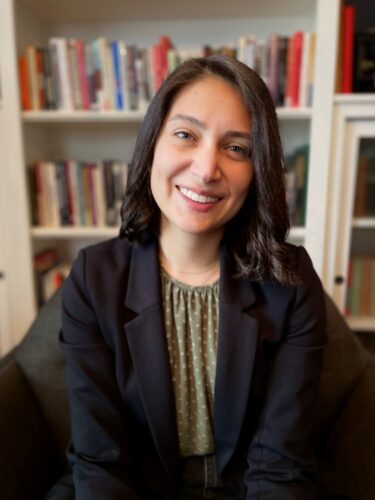
Dr. Javiera Perez Gomez’s research examines the moral permissibility of several policies or practices that have been said to hinder racial, gender and disability justice by exacerbating preexisting disadvantage. Much of this work stems from her dissertation, “Disadvantage in Context: From Microaggressions to Healthcare Policy,” which focuses on three such practices: microaggression, the promotion of prenatal testing for selective abortion and the allocation of scarce medical resources.
“Her arguments have applications outside philosophical debates, most obviously in terms of developing health care policies and achieving educational effectiveness,” said Dr. Lezlie Knox, interim chair of philosophy in the Klingler College of Arts and Sciences. “When we are considering whose experiences are heard in the classroom, lab or clinic, Dr. Perez Gomez’s research makes a case for an empathetic openness toward intellectual and social diversity.”
The Way Klingler Early Career Award will support time for the completion of her first book, “The Moral and Epistemic Wrongs of Microaggressions.” Her work on microaggressions lies at the intersection of ethics and epistemology. Microaggressions are said to be subtle slights or insults that communicate devaluing messages to and about members of certain social groups. Existing accounts of microaggression tend to assume that microaggressions are wrong by definition: specifically, because they cause psychological harm in their victims. Perez Gomez argues this assumption obscures an important and useful distinction between when an action is a microaggression and when a microaggression is morally wrong.
“I am very grateful to Helen Way Klingler for starting such a impactful fund at Marquette, to the selection committee for all of their hard work in the selection process, and to the Philosophy Department for their support in applying to this award,” Perez Gomez said. “The semester release from teaching will allow me not only to focus on my book manuscript, but also to begin work on my next research project, which will examine the epistemic and moral dimensions of the concept of alienation.”

Dr. Michelle Rodrigues, assistant professor of social and cultural sciences in the Klingler College of Arts and Sciences
Dr. Michelle Rodrigues’ research focuses on the evolution of friendship, social networks, and stress physiology in human and nonhuman primates. The central theoretical question she seeks to answer is how and why social relationships, particularly female-female social relationships, evolved in primates, and how these social relationships help regulate stress physiology. Her research has broadened to include examining the broader social context and the mechanisms of relationship maintenance throughout the lifespan.
“I’m honored to receive the Way Klingler Early Career Award,” Rodrigues said. “Because I came to Marquette in fall 2020, every semester has been a bit of a whirlwind. I am looking forward to having more time during my sabbatical to focus on moving my research program forward.”
This award will allow Rodrigues time to conduct research that examines how affiliative behaviors, both sexual and nonsexual, contribute to the maintenance of social bonds in female bonobos. This research will largely be conducted at the Milwaukee County Zoo, which has the largest group of captive bonobos in the United States. She aims to leverage this data to support funding applications to support a longer-term, more intensive study of the dynamics of female sociality and sexuality in bonobos and publish research that articulates an updated theoretical paradigm that considers how female bonobo agency, including the desire for sexual pleasure and friendship, underly the proximate mechanisms that contribute to the evolution of bonobo behavioral dynamics.
“This project will apply a queer, feminist framework to consider the role of friendship and sexuality among bonobos with the goal of providing a new, comparative framework for reconsidering these dynamics in humans, as broadening our understanding of the dynamics of primates helps us better understand complex sexuality among humans,” said Dr. Meghan Stroshine, chair and associate professor of social and cultural sciences.
Dr. Gabriel Velez, assistant professor of education policy and leadership in the College of Education

Dr. Gabriel Velez’s research focuses on how young people make sense of educational experience as part of building ideas about who they are and their places in the world, with the end goal of more effectively supporting prosocial, engaged and positive outcomes for young people and their communities. He investigates this meaning making of educational experience with an equity and rights-based lens to restorative justice, peace education, and college access and transition in context.
“He consistently attends to and advances the three central foci of his work, namely restorative justice, peace education, and college access and transition,” said Dr. Jody Jessup-Anger, professor and chair of educational policy and leadership in the College of Education, “producing 16 journal articles, 12 book chapters, three edited volumes, six popular media pieces and one book review since his arrival at Marquette. For many of these pieces, he is first or sole author.”
The Way Klingler Early Career Award will help Velez advance all three strands of his scholarship and establish a theoretical and empirical basis for integrating restorative justice and peace education. He will complete a book manuscript motivated by his dissertation: a multi-year qualitative study with Colombian adolescents investigating their thinking about peace, response to peace education and integration of this sense-making into their identity development.
“I am honored to receive the Way Klingler Early Career Award for my work advancing psychological understandings of youth development, restorative justice and peace education,” Velez said. “At Marquette, I have been blessed with wonderful support and encouragement to explore my research in these areas through the College of Education, the Center for Peacemaking, and the Center for Urban, Research, Teaching, and Outreach. With this award, I am excited to weave these themes and projects all together in an innovative and integrative book manuscript.”
Participating Faculty Research Achievement Award
Dr. Rachel Bollaert, clinical assistant professor of exercise science in the College of Health Sciences

Dr. Rachel Bollaert’s research focuses on the promotion of physical activity behavior for veterans and the understanding of behavioral and neurobiological associations with physical activity, mindfulness and post-traumatic stress disorder. Over 7.5 million Americans currently live with PTSD, which is associated with reduced quality of life, suicidality and poor physical health. A significant sub-population of those with PTSD are veterans across wars and eras – 30% of veterans live with PTSD at some point in their lifetime.
“She is addressing a critical gap in care for this population as little is known regarding the optimal way to engage and change health behaviors,” said Dr. Allison Hyngstrom, chair and professor of physical therapy in the College of Health Sciences.
In 2019, Bollaert collaborated with local veterans organizations and researchers to conduct focus groups with veterans in the Milwaukee and surrounding communities to gain better understanding of veterans’ experiences with and perspectives on physical activity behavior. In 2021, she collaborated with colleagues at Marquette, the Medical College of Wisconsin and the Milwaukee VA Medical Center and served as co-primary investigator alongside Dr. Jacklynn Fitzgerald on a project that studied the effects of a yoga intervention on health in veterans with PTSD.
“It is truly an honor to receive this award,” Bollaert said. “I feel very lucky to be working at a university in which I have the opportunity to both teach and do research, and this award is an example of the support I am appreciative to receive as a participating faculty member.”
Way Klingler Sabbatical Fellowship
Dr. Karen Andeen, associate professor of physics in the Klingler College of Arts and Sciences, was named the 2023-24 Way Klingler Sabbatical Fellowship Award winner.
Read about Andeen’s research here.
Sabbatical Fellowship Award
Dr. Mark Berlin, associate professor of political science in the Klingler College of Arts and Sciences, was named the 2023-24 Sabbatical Fellowship Award winner.
Read about Berlin’s research here.
